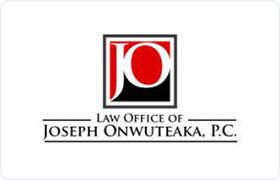Rockdale Real Estate Other Lawyer, Texas
Sponsored Law Firm
-
 x
x

Click For More Info:
-
Law Office of Joseph Onwuteaka, P.C.
8323 Southwest Fwy Suite 650 Houston, TX 77074» view mapSlip & Fall Accident Fighting Fearlessly For Your Rights
I'm committed to providing experienced and tenacious legal representation. I will fight for the best possible outcome in your case & won't give up, even when things get tough.
800-960-3430
Includes: Commercial Leasing, Commercial Real Estate, Condominiums, Conveyancing, Housing & Urban Development, Premises Liability, Residential Real Estate, Title Insurance
FREE CONSULTATION
CONTACTMichelle Burrough Lehmkuhl
Commercial Real Estate, Wills, Family Law, Personal Injury
Status: In Good Standing Licensed: 22 Years
Jenny L. Gebhart
Commercial Real Estate, Oil & Gas, Family Law, Credit & Debt
Status: In Good Standing Licensed: 16 Years
Mark Maedgen Humble
Commercial Real Estate, Wills, Family Law, Divorce & Family Law
Status: In Good Standing Licensed: 51 Years
Robert B. Todd
Credit & Debt, Litigation, Business & Trade, Commercial Real Estate
Status: In Good Standing Licensed: 50 Years
Margaret A. Polansky
Commercial Real Estate, Real Estate, Wills, Estate
Status: Inactive Licensed: 47 Years
Ted Wm. Hejl
Commercial Real Estate, Real Estate, Wills, Estate
Status: In Good Standing Licensed: 56 Years
Leland R. Enochs
Commercial Real Estate, Family Law, Elder Law, Business & Trade
Status: In Good Standing Licensed: 48 Years
James Patrick Quinn
Commercial Real Estate, Wills, Family Law, Business & Trade
Status: In Good Standing Licensed: 47 Years
Amy A. Mclean
Commercial Real Estate, Litigation, Wills, Family Law
Status: In Good Standing Licensed: 25 Years
 Joseph Onwuteaka Houston, TX
Joseph Onwuteaka Houston, TX Practice AreasExpertise
Practice AreasExpertise
